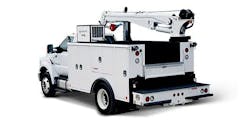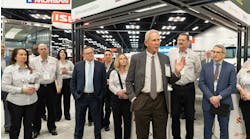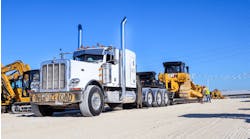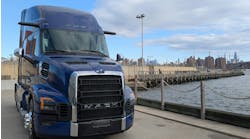The National Highway Traffic Safety Administration recently issued recall notices for commercial vehicles, including brands from Ford and Reading Truck Body.
Owners of the affected vehicles should be contacted via U.S. mail over the next two months, but fleet and independent owners of these vehicles can contact the NHTSA Safety Hotline at 888-327-4236 or visit nhtsa.gov for more details. More information on each recall can be found below.
Ford Maverick taillights may fail
Ford is recalling certain 2022-2024 Maverick vehicles. The Body Control Module may inadvertently deactivate one or both rear taillights. Rear taillights that fail to illuminate can reduce the vehicle's visibility to other drivers, increasing the risk of a crash.
This recall potentially affects 242,669 vehicles. Dealers will update the BCM software. Owner notification letters are expected to be mailed May 20. Owners may contact Ford customer service at 866-436-7332. Ford's number for this recall is 24S24.
Ford Transit Connect models’ panoramic roof panel may detach
Ford is recalling certain 2017-2019 Transit Connect vehicles. An improper bond may exist between the panoramic roof and the vehicle body, which can result in the panel detaching from the vehicle. A roof panel that detaches while driving can create a road hazard and increase the risk of a crash.
This recall potentially affects 1,315 vehicles. Dealers will remove, clean, and reinstall the panoramic roof panel. Owner notification letters are expected to be mailed May 20. Owners may contact Ford customer service at 866-436-7332. Ford's number for this recall is 24S29.
See also: Recall Roundup: Safety notices issued for CVs and trucks
Reading Truck Body models’ taillights exceed max allowed height
Reading Truck Body is recalling certain 2022-2024 RM-78 11-ft. and RM-78 14-ft. vehicles. The taillight may be incorrectly positioned, exceeding the maximum allowed height. As such, these vehicles fail to comply with the requirements of Federal Motor Vehicle Safety Standard number 108, "Lamps, Reflective Devices, and Associated Equipment." Incorrectly mounted taillights can reduce the vehicle's visibility to other drivers, increasing the risk of a crash.
This recall potentially affects 54 vehicles. Dealers will relocate the taillights. Owner notification letters are expected to be mailed May 6. Owners may contact Reading customer service at 800-458-2226.







